detail profile tzvi shissel
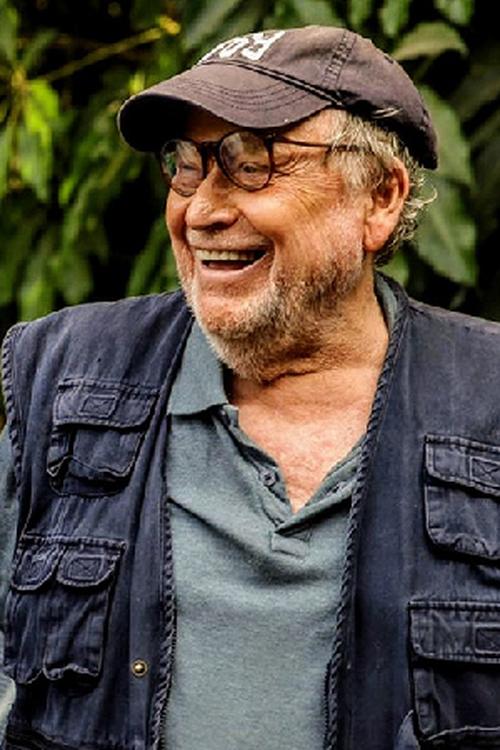
Tzvi Shissel
Sigi Schissel
atau dikenal sebagai
Peran Yang Di Mainkan Tzvi Shissel
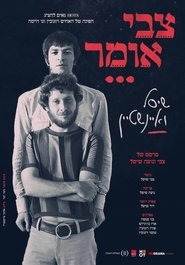 Tzvi Shissels last film documents his...
Tzvi Shissels last film documents his...Tzvi says - Shissel and Einstein 2022
Tzvi Shissel's last film documents his lifelong friendship and creative partnership with Arik Einstein, from their Tel Avivian childhood to Shissel's death, using never-before-seen homemade and archived footage.
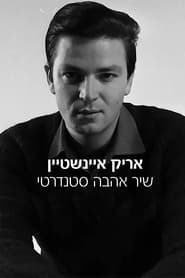 A musical biographical series bringing the...
A musical biographical series bringing the...A Standard Love Song: Arik Einstein 2017
A musical biographical series bringing the story of Arik Einstein -- The man whose voice is a significant anchor in Israeli culture and his story is also Israel's story.
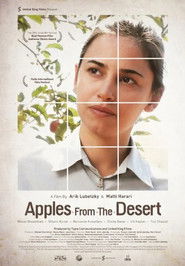 Based on the awardwinning play and...
Based on the awardwinning play and...Apples from the Desert 2014
Based on the award-winning play and popular Israeli short story, this poignant family drama follows Rivka, 19-years-old and strong-willed, who struggles to follow the conservative lifestyle of her ultra-orthodox parents in Jerusalem. Determined to break free from her parents’ rigid worldview, she runs away to a secular farming community in the desert. The decision pushes the two generations to confront the chasm between their stringent views of tradition and modernity.
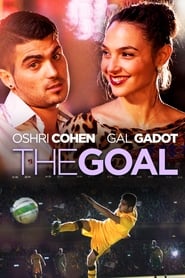 In the conservative city of Jerusalem...
In the conservative city of Jerusalem...Kicking Out Shoshana 2014
In the conservative city of Jerusalem, Ami Shoshan, an Israeli football player, is forced by a mafia boss to pose as a homosexual, a punishment for flirting with the criminal's girlfriend. Shoshan is banned by players and fans of his team, but becomes a hero of the gay community.
 This movie is a sequel to...
This movie is a sequel to...Lemon Popsicle 9: The Party Goes On 2001
This movie is a sequel to the saga of movies about 3 guys in the middle of the 50's during their sex urges and other funny incidents.
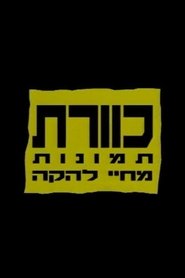 In the summer of 1990 six years...
In the summer of 1990 six years...Kaveret: Pictures from the Life of a Band 1992
In the summer of 1990, six years after the first and successful reunion of Kaveret, the band members reunited for another concert tour under the title "Kaveret Returns". The film "Kaveret - Photos from the Life of a Band", released in 1992, documented this concert tour held in Yehoshua Gardens Park in Tel Aviv, in Caesarea Amphitheater, in Arad and in Eilat. The late director Zvi Shissel accompanied the members of the band on their journey across the country, heard stories and memories from them from the beginning of the journey and documented Kaveret on stage and behind the scenes.
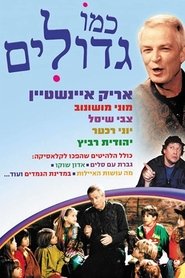 Kemo gedolim is a collection of...
Kemo gedolim is a collection of...Like Adults 1991
"Kemo gedolim" is a collection of well known Israeli, children songs sang by Ariḳ Ainshṭain and others. In between the songs embedded short skits starring Moni Moshonov and Tsevi Shisel , who embody two porters hauling a giant crate up a winding staircase and unexpectedly run into Ariḳ, a group of kids, jugglers, clowns and storytellers emerging from the crate. The two, try to do their job faithfully but occasionally they also try to sing, dance and play, which creates a variety of funny moments.
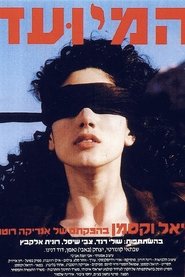 Shmaya Shuli Rand a smalltime magician...
Shmaya Shuli Rand a smalltime magician...The Appointed 1990
Shmaya (Shuli Rand), a small-time magician whose career consists of gigs at local venues in the north of Israel, meets Oshra (Ronit Elkabetz) at one of his shows, who possesses genuine mystical powers. Shmaya makes Oshra part of his act and together, they perform real-life feats of magic and miracles before their slack-jawed audiences. Meanwhile, Shmaya’s father – a holy man with his own loyal following, is dying. He asks his followers to bring him his estranged son, so that he can take his place after his death and lead their community. Shmaya does just that and goes on to become a spiritual leader. However, his ongoing attraction to Oshra is now on a collision course with his new calling.
 A spinoff film that centers around...
A spinoff film that centers around...Private Manoeuvres 1983
A spin-off film that centers around Yudale/Huey's mandatory Israeli army service, post boot camp. This time he helps his sergeant Shemesh beat a rival base, while also beating him to score with the visiting Swiss Ambassador's wife.
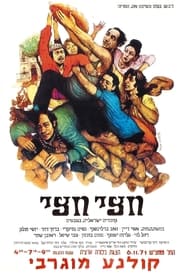 In this Israeli comedy the baker...
In this Israeli comedy the baker...Fifty Fifty 1971
In this Israeli comedy, the baker has half a winning lottery ticket, and his deceased partner has the other. In order to benefit from winning, somebody needs to put the two together. The baker searches stealthily for the missing half, so do the dead partner's son-in-law and a group of thieves who hear of this potential windfall. There is some slapstick as this group chases one or another of its member through the streets and shops of Tel-Aviv
 A musical semidocumentary motion picture considering...
A musical semidocumentary motion picture considering...The Snail 1970
A musical, semi-documentary motion picture considering the making of "Shablul", a rock album by Arik Einstein and Shalom Hanoch. The film demonstrates fragments of being, a few funny sketches and musical numbers, much affected by The Beatles' flicks. "Shablul" reminds its viewers the taste of 60s, showing them the Israeli pop/rock scene of these jolly years.
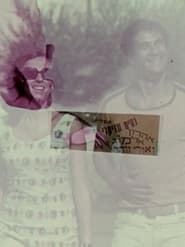 An experimental and absurd avantgarde film...
An experimental and absurd avantgarde film...The Other Side 1968
An experimental and absurd avant-garde film about a bunch of unrelated people, all standing on the side of the road waiting for the traffic light to change from red to green, but the traffic light won't change. More and more people gather on the sidewalk, and a kind of class society is formed there. The film was shot during one day in which Ephraim Kishon lent Uri Zohar the set of "Blaumilch Canal" at Herzliya Studios.
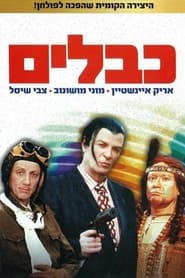 A comedy about changes in the...
A comedy about changes in the... Gote and Eli are two aging...
Gote and Eli are two aging...